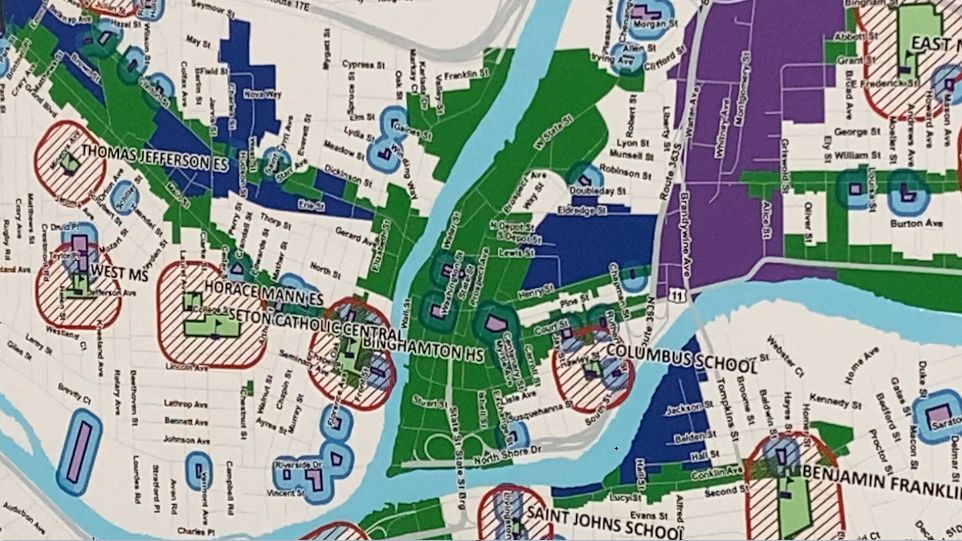Binghamton is now one step closer to welcoming cannabis dispensaries into the city, an entirely new industry, and new zoning maps could lay the groundwork for its future.
Mayor Jared Kraham unveiled a draft Thursday which would set restrictions on where dispensaries could be located, including 500-foot buffer zones around schools and 200-foot buffer zones around places of worship.
“We want to make sure that the growth of the cannabis industry is done responsibly and benefits our community, that the different types of cannabis businesses, whether it’s retail sale, whether it’s manufacture, fit the character of commercial districts," Kraham said.
What You Need To Know
- Binghamton, like other cities, would receive a 3% tax on every sale of adult-use cannabis
- Mayor Jared Kraham unveiled a draft Thursday which would set restrictions on where dispensaries could be located, including buffer zones around schools and places of worship
- There will be a public comment period before any of the maps are signed into law
Binghamton, like other cities, would receive a three percent tax on every sale of adult-use cannabis. It’s estimated the new market could bring upwards of $1 billion to the state in the coming years.
“We have to be very conservative with our approach to this. We don’t want to count our money before it comes in. We’ve seen what happens with other levels of government when that takes place. So we want to have a cautious approach," said Kraham.
As far as the map goes, the green areas would be open for retail and on-site consumption, while the blue would be for retail and industry only.

Cannabis would be off-limits all together in any red areas.
Kraham said excitement is growing for Binghamton and beyond, for those looking to start businesses.
“The interest has been high, and this goes for both people interested in retail dispensary, as well as companies from out-of-state that are interested in potentially building multi-million dollar facilities to host cultivation,” said Kraham.
While the future might be uncertain when it comes to timing, Binghamton is looking to get ahead of the game, to capitalize on a growing industry.
“We want to be a leader in this market. We want to corner potential investment, and if you’re going to invest in New York state cannabis, give people a reason to do it in Binghamton,” Kraham said.
There will be a public comment period before any of the maps are signed into law. Local leaders don’t expect dispensaries to begin popping up until next year.



